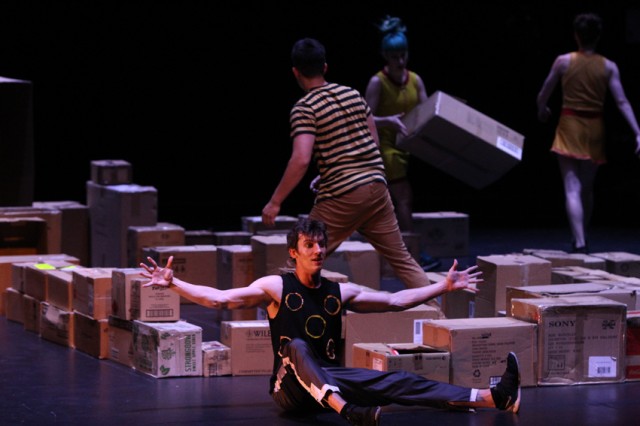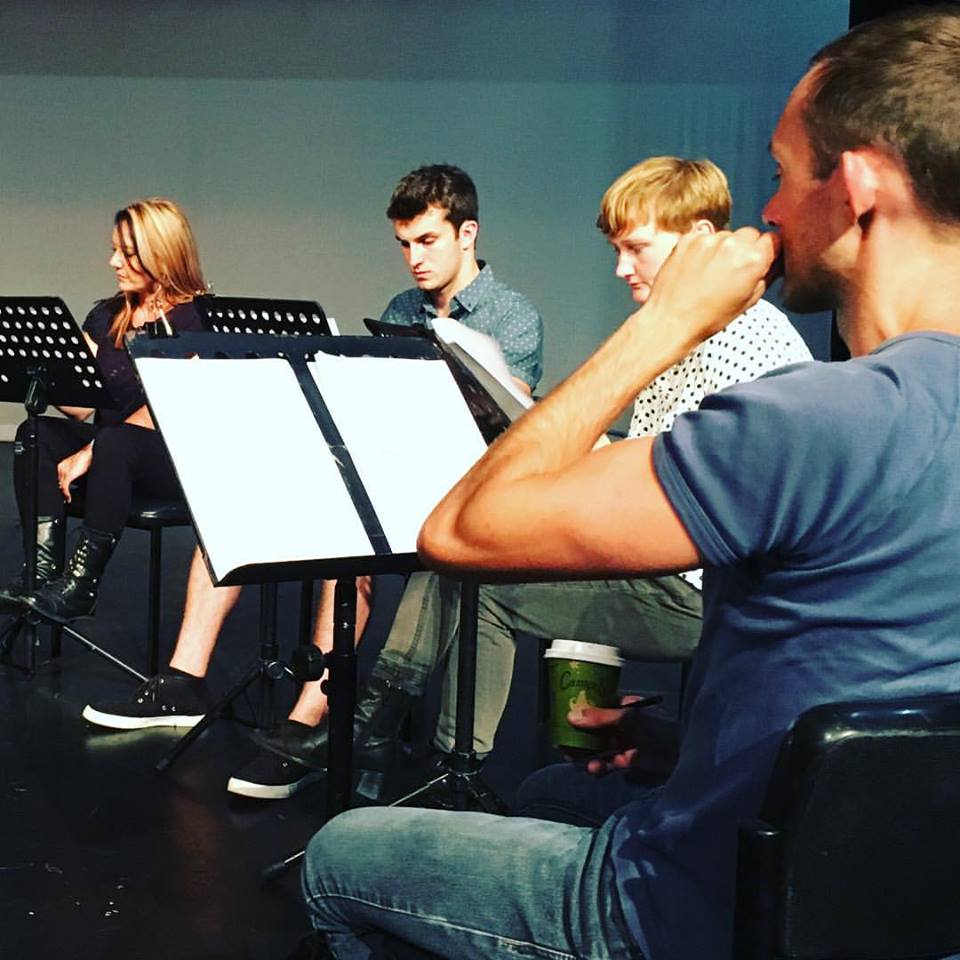13.10.16
First up, I have to confess: I’ve invaded the Griffin Studio this year. I am an Arts NSW Regional Artist Fellow for 2016, and my work with the Studio is supported through that program, generously welcomed by Griffin and the five other Studio Artists. My fellowship this year is focused on research and the practical applications of creating a sustainable professional theatre Directing practice based in Bathurst. Working with the Griffin Studio is part of this strategy. Along with travelling to other regional centers with strong performance practice and a residency overseas in the UK, it is a way of developing a truly local, national and international perspective on the position of my work in regional NSW.
I’m not only finding the Studio to be a great opportunity to immerse myself in a vital metropolitan company, but also leverage it as a unique platform to advocate for the validity of professional regional theatre-making practice. When I run into friends who work in theatre from Sydney or Melbourne or Brisbane, I’m usually met with remarks about still being out in Bathurst or queries about when I’m going to finally move to the city to ‘give it a real go’. I used to get annoyed or defensive, feeling like it was an attack on the professionalism of my work or on the development of my career. These days, as my practice and I have matured, I see these comments as a misunderstanding and a product of the metro-centric attitudes that dominate thinking around art making in this country.
At the Australian Theatre Forum last year I took part in a session for Independent theatre workers and in this forum the facilitator asked us, as a group (and it was a large group), to create a list of all the resources we wish we had access to, as independents, to enable our work. By the end of the session, the group had settled on a list that involved inexpensive rehearsal/performance venues, access to technical equipment and support, an audience hungry for their work, access to varied and diverse types of funding, established industry champions for their work, and more time and a smaller cost of living to provide space in their life to create work.
I remember so clearly sitting in that session, looking at that list, and realising that I had all of that in Bathurst.
It was a galvanizing moment for me: being based in regional Australia was not a hindrance, but an abundant blessing.
I’m really grateful for all the opportunities that I was afforded as a young artist, and continue to have, in Bathurst. With my own practice as Co-Artistic Director of Lingua Franca Dance & Physical Theatre, I have been funded for at least two new works each year since 2011 (often more), toured performances nationally and overseas, managed projects funded simultaneously by all three levels of government, have developed a strong and continuing relationship with Local Stages, Bathurst’s nationally recognised regional performance arts development program, collaborated with and been mentored by some of Australia’s leading companies and artists, and have a ‘day-job’ working with tenacious and hungry young artists in my role as Lecturer in Theatre/Media at Charles Sturt University.
And so when friends, family or other members of the industry talk about giving it a real go in the city, I politely talk about one of my next projects, and I get back to work.
There is a reason that most arts funding bodies now have rural and regional Australians as a priority development area, and that is because people are starting to really notice that there is a vibrant and contemporary arts ecology outside the cities that has great capacity to contribute to the nation arts landscape, and there are audiences there that want locally made, nationally competitive work they can have ownership over. I am proud to be a part of that.
I think the key to creating greater visibility for professional regional practice is ensuring that the work we make outside the cities has potential for real national resonation and significance. The biggest work I’m developing this year, in collaboration with a number of regional artists and under the mentorship of Griffin Artistic Director Lee Lewis, is a new adaptation of Euripides’ Medea, currently named JASON.
JASON is an inversion of the Medea story using the myth to explore the epidemic of murder/suicides committed by men against their families in regional Australia. In our version of the narrative, it is Medea that marries into the Corinthian royal family, leaving Jason on the docks with their children, threatened with exile, and inevitably killing his children (and potentially in our version Medea and/or himself as well). By incorporating an examination of how local and national journalists report these crimes by partly exonerating the criminals and blaming the victims, JASON is also an exploration of how communities attempt to make sense of these sudden but frequent events.
The use of a classical text to explore this issue provides an imaginative distance for a regional community, that may not be as familiar with the Medea text, to examine these crimes, and for a metropolitanaudience, with more access to various productions of the work, the acquired knowledge of the established play has the potential to amplify the resonances with the modern world. I learnt from Lee, when I worked as affiliate director on Angus Cerini’s The Bleeding Tree last year, the value of providing this imaginative landscape for an audience when encountering a very real, traumatic experience. We don’t seem to have a language to help us deal with these atrocities without resorting to silence or hysteria. We saw this in Lockhart in 2014 and last year we saw it in Bathurst. The metaphorical and symbolic landscapes of theatre can help us approach and confront these difficult conversations in a way that the media cannot.
It’s been wonderful to have the opportunity to share this work in development with the Studio. We read some of the work last month in our weekly meet; just FYI, Catherine Fargher can do a mean CWA-stalwart-as-female-version-of-Creon and Phil Spencer can make anything, even an enraged ancient Greek hero, a bit funny.
We continue to share work with each other in the Studio and it’s a great blessing to part of that. I’m looking forward to seeing what Spring brings for the six of us.
Images:
1) unsustainable behaviour Lingua Franca, 2015 in Bathurst
2) Rehearsed reading of JASON, 2015, with Zoe McGirr, Hudson Emery, Carolyn Eccles and Mark James Dessaix



